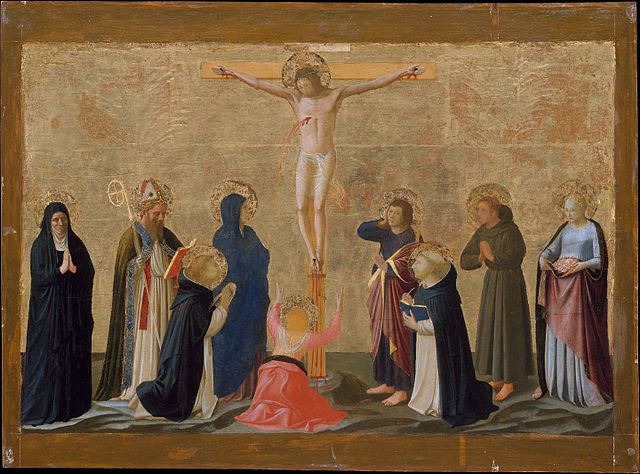
During the Sacred Triduum – the days of Holy Thursday through Easter Sunday – the strangest thing will occur. Millions of Christians throughout the world will gather to honor the humiliation, torture, and crucifixion of Jesus Christ.
In a global culture that usually celebrates power, strength, and beauty, this public veneration of something so horrible is always a little shocking. Could it be that what people find so absolutely compelling about the Passion narrative is the vulnerability of God?
In the Christ event, God leaves the safety and glory of heaven, in a certain sense, and embraces the limitations of our human condition, coming to know in the flesh both the glory and tragedy of our nature without ever having sinned.
In the last week of his life, Jesus completely hands himself over to us. In the foot washing and the Eucharist, in the scourging and the crucifixion, the Son of God loves us completely without restrictions, conditions or limits.
Whether we accept, reject or ignore this Divine Love, Jesus never changes his fundamental stance toward us.
In Roman and Greek mythology, the gods are always conspiring to manipulate humanity to serve their often selfish ends and egotistical schemes. In Christ, we encounter the surprising subversion of this oppressive game. God serves us! In absolute humility, availability, vulnerability, and mercy, God has come to love, pardon, and save us.
The weakness of the cross, the simplicity of the Eucharist, the tenderness of the foot washing, the love that seeks to embrace a traitor, a thief, and a coward is so beyond the grasp of power politics, the swirl of social hubris, and the world of earthly grasping that it takes our breath away. No wonder that kings would stand speechless in the presence of the Suffering Servant, as Isaiah proclaims.
If God could become that poor, humble and vulnerable to love me, how can I ever stand on my own self-importance?
During Holy Week, we celebrate the strangest things: weakness becomes strength, love conquers fear, miserable despair transforms into resurrected hope, and perpetual death gives way to eternal life, and it’s all because a naked criminal was thrown down on a cross 2,000 years ago, and he embraced it as if it were his marriage bed.
We should let the Lord love us during Holy Week. The palm we held on Palm Sunday should be a symbol of our praise, reverence, and love for the humble Master who has saved and set us free.
The Mass of the Lord’s Supper on Holy Thursday evening is an opportunity to taste the surprising grace of the Eucharist and surrender to the consolation of the foot washing.
Listening to the Passion and venerating the cross on Good Friday gives us the opportunity to embrace the cross in our own lives, no matter what form it may take. Know that the mystery of suffering in our lives is the sacred ladder by which we will ascend to the beauty of the kingdom of heaven.
Holy Saturday is a sacred time of rest and silence, as the Lord sleeps in the tomb and all of creation awaits a salvation it does not yet understand.
A beautiful ancient text from the early Church pictures Jesus roaming the abode of the dead on this day, unchaining Adam and Eve and all of the other souls who had been waiting for redemption since the foundation of the world. Ask the Lord to set you free from the fear, sin and self-seeking that keeps you bound.
Gathering around the Easter fire at the Vigil, we call to mind how we began the Lenten journey marked with the ashes of sin, failure, and defeat, but now you have become filled with fire – the mighty force of the risen Christ and the courageous strength of the Holy Spirit. As we proclaim the resurrection of Christ as the beautiful truth and transformative meaning of human history, know that the Lord walks with you, loves you, and is leading you to the fullness of joy and peace.
The shocking, strange, and powerful events of Holy Week should lead us to tears and laughter, gratitude and praise, humble awareness of our weakness, and joyful acclamation of God’s victory. The Triduum is a time for God to break open our hearts, so that the gracious torrent of Divine Mercy that flows from the side of the crucified Christ will wash us clean, forgive our sins, and fashion us ever more deeply in the new creation of the Lord’s saving death and resurrection.
Bishop Donald J. Hying is bishop of the Diocese of Madison, Wisconsin.









